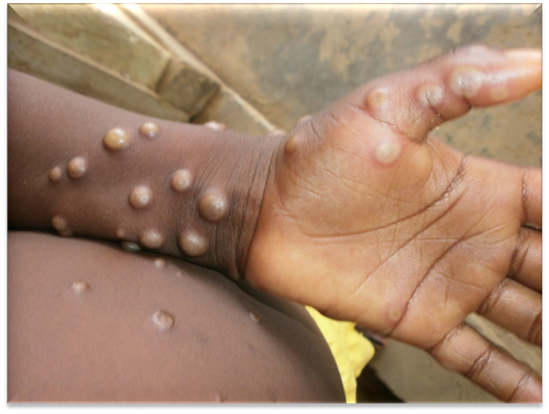
The Africa Centres for Disease Control and Prevention (Africa CDC) has recently declared Mpox a Public Health Emergency of Continental Security (PHEIS), the first of such declaration since the inception of the agency in 2017. Just after that, the World Health Organisation (WHO) also declared the disease as a public health emergency of international concern. These declarations are all coming as a result of the ongoing outbreak of Mpox in certain parts of Africa. Whether by the WHO or the Africa CDC, tagging a disease a public health emergency means different lines of responsibility for different stakeholders. As an individual, one of the things it surely means for you is that you must arm yourself with adequate information about the disease.
So what should you know about Mpox?
- Mpox (formerly known as Monkeypox) is a disease caused by infection with a virus, called Monkeypox virus. The virus is part of the same family as the virus that causes smallpox. It is a zoonotic disease. This means it can be spread between animals – such as rodents – and humans.
- There is an ongoing outbreak of the disease in Africa, with the highest impact in the Democratic Republic of Congo, and also extending to other countries such as Burundi, Kenya, Rwanda, Uganda, Cameroon, Central African Republic, Côte d’Ivoire, Liberia, Nigeria and South Africa. As of August 13, 2024, the aforementioned countries have confirmed 2863 cases and 517 deaths, primarily in the Democratic Republic of Congo.
- Between July 15 to August 5, 2024, the Nigerian Centre for Disease Control reported 51 suspected new cases of Mpox. And in 2024 alone, Mpox has been confirmed in 30 local governments across 19 states in Nigeria.
- Mpox is transmitted through close contact with an infected person. This includes skin-to-skin touch (including sexual intercourse), mouth-to-mouth or mouth-to-skin (as seen in kissing), saliva, respiratory droplets and contaminated surfaces. It can also spread through infected animals, especially small rodents in endemic regions like the Democratic Republic of Congo and Nigeria.
- Symptoms include fever, headache, rash, muscle aches and backaches, sore throat, swollen lymph nodes and so on. These symptoms can be mild or severe.
- There is currently no specific treatment for Mpox, although some antiviral medications can help patients with the disease. However, the WHO has approved two vaccines for the disease. The Organisation recommends vaccination to high-risk populations and health workers. Currently, this vaccine is unavailable in Nigeria and many other African countries.
What can you do?
- Share correct information about the disease with others.
- Avoid any form of close contact with those confirmed to have Mpox or those with similar rash or other symptoms.
- Avoid contact with rodents and wild animals, especially those that are clearly sick.
- Practice good hygiene and regular hand washing all the time.
- If you or anyone around you experiences the symptoms mentioned earlier, report to a hospital immediately.
Source: WHO, Africa CDC, NCDC
Remember to subscribe to our newsletter for timely updates from us!









